Summary for July 2025
Space zombies
I suppose I can see why people consider Metroid Prime 2: Echoes to be weaker than the first game. It’s a classic sequel problem: what to improve and leave alone, what to add and remove.
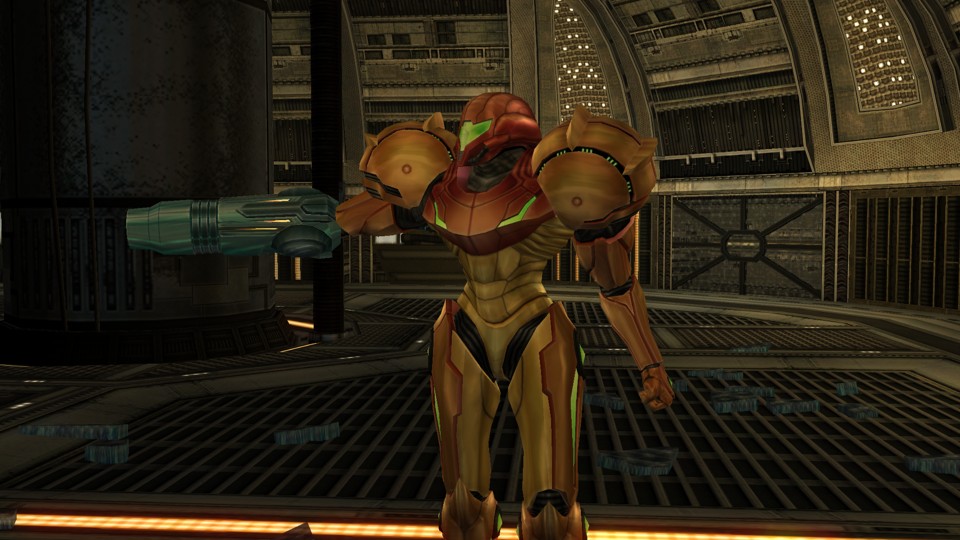
I wouldn’t say that, though. I think it’s not better, but worse? Nah. All my complaints are still there, which some would argue is part of the genre. But whatever the reason, I’ll remember the annoying parts, not the difficult parts. And the annoying parts should be improved.
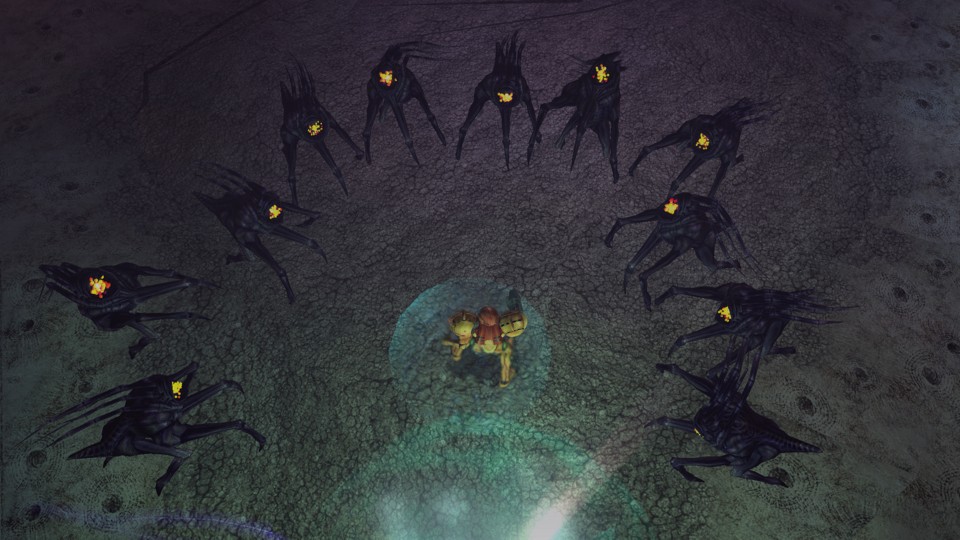
However, I don’t want it to seem like I’m just complaining. While no part of it is amazing, I think it’s a good game overall. And, in a genre dominated by 2D games, a rare one.
White Zombie is an influential horror film that, as one might guess, is pretty problematic. Sadly, a theme I would be comfortable discussing – zombies as unpaid, tireless laborers, – is barely in the movie. And kinda absent from the modern movies, huh.
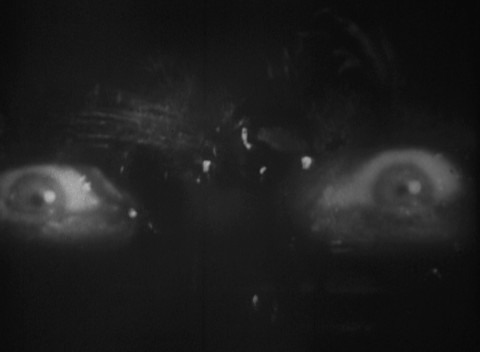
I called it problematic, but as I, a white dude, can judge, I don’t think it’s awful. It’s simple but not boring, despite being slow like old movies tend to be, and still interesting, at least from a historic perspective.
Summary for June 2025
Catching up with darkness
Quake 4 leaned into two aspects of its predecessor. First, since it’s a military sci-fi game, you’ll often find yourself alongside other soldiers, or at least someone will talk to you over comms. You will also occasionally pilot vehicles, which makes sense in this context, and guns have alternative modes and receive upgrades from time to time. Second, the game is essentially a horror game. The Strogg have always been technozombies, but this time it’s cranked to eleven. Including first-person body horror and actual zombies.
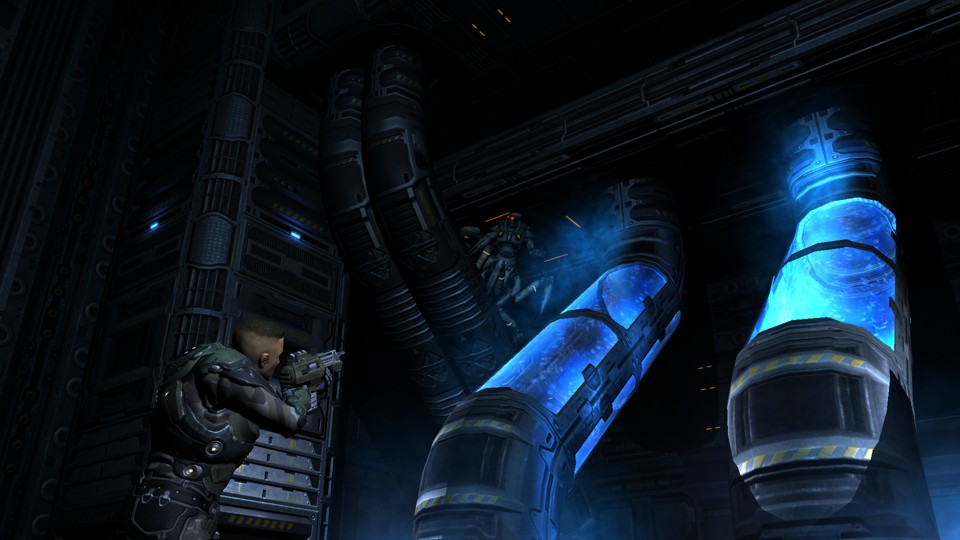
I find it hard to imagine that there was a discussion at the time about what Q2 depicted poorly. But if there was, it feels like they specifically addressed my concerns in Q4.
- I think the reimagination of an Iron Maiden is pretty good and makes them a more unique enemy. There are some pilots and a computer that have female voices, but you never see them. You can’t cheat your way into playing as a woman.
- There are plenty of men of color in your fellow soldiers, but they are all one-dimensional at best. The only ones you probably remember are the guy who [spoiler], the dude with the Russian accent, and the technician voiced by Peter Stormare. So, all white. The main character is also white.
- Since the game leaned so heavily into horror, at least for me, none of what is depicted reads as “bad treatment of PoWs”. What can you expect from monsters!
Did they address it? It seems like it, doesn’t it? Was that an improvement? At that time? Kinda?.. Today? Of course not!
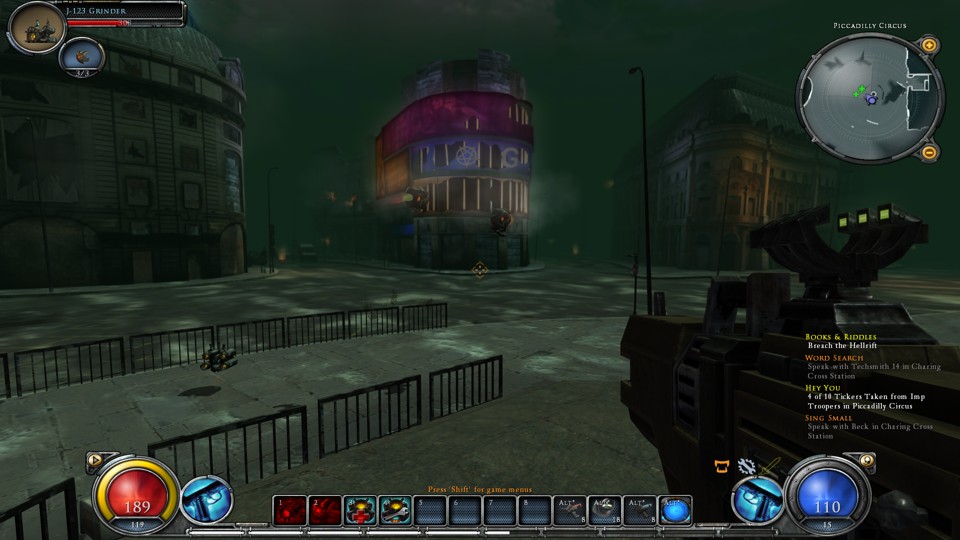
Is Hellgate: London an evolutionary dead-end? Everyone after it went another way: instead of trying to make an action RPG look like a first-person shooter, they made first-person shooters with RPG elements. Or is it a stepping stone, when today almost every game is a genre hybrid?
Even at the time, the consensus was that it should have played more like a shooter. However, I also see merit in this approach, where your aim, your positioning, etc. – you know, shootery stuff – don’t matter that much. I believe those types of action RPGs were always aimed at a more casual crowd. They were designed to run on average hardware and were less involved, so to speak. Why not make casual looter shooters? I would have liked to see that timeline.
It’s easy to argue that mobile shooters went that direction.
Besides this unique approach, is there anything else in the game that makes it interesting even today? Not really. It’s not a bad game, but it’s not great either. There are some bugs and finicky elements, a kind of meh story, and some it’s-from-almost-20-years-ago shenanigans. Still, it’s an interesting curio worth remembering.
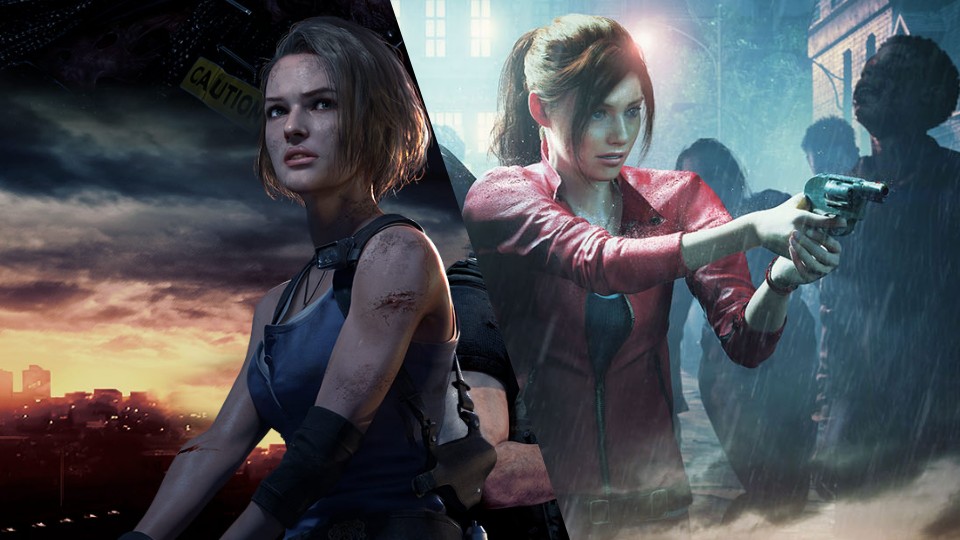
I like what you did with the place! By which I mean I like both remakes of Resident Evil 2 and Resident Evil 3. And they are full-on remakes, I checked: I accidentally finished the original Resident Evil 2 (1998). You would recognize the game because it has most of the original’s story, characters, and game mechanics. However, you would never mistake the two if someone put the original into a modern engine or vice versa. They redid a lot!
At this point, you can’t trust me, I’ve lost all sense of what constitutes an improvement versus a change made just for the sake of change. So I can’t tell you which version is better because they’re so different. I liked them both. I don’t think the old one is unplayable from today’s perspective: the game doesn’t write notes for you, which is basically what remake is doing, but it still gives you all the information you need. Maybe write a note or two yourself, just to be safe.
I didn’t finish the original Resident Evil 3, only played a bit. But I can also confirm that it’s very different. Besides the comparison between the old and the new, my opinion on 3 is more or less the same as on 2.
All the praise I can give these two (three) games doesn’t mean they’re perfect. Despite having female protagonists from the beginning, the series often falls into uncomfortable stereotypes. Also, the entire series, which has nearly a dozen games in its main branch alone, with minuscule exceptions, is white as snow. How?! While I can’t say any of the games are copaganda, it’s hard not to notice how all the issues are blamed on a few bad individuals or companies. Plus all the usual issues that plague horror may be present from time to time.
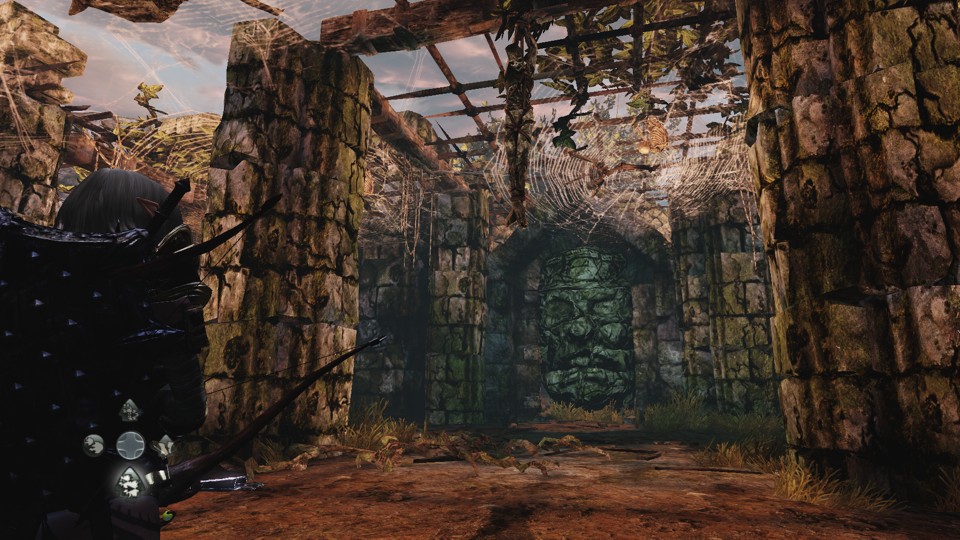
Hunted: The Demon’s Forge grew on me. In the end, I decided to think of it as a fantasy version of Gears of War: it is a co-op game that you can play solo; you have both ranged and melee weapons; it has cover and giant bosses; and it looks the part (same engine helps). But it goes beyond that by incorporating all those dungeon-crawling elements from its tabletop inspirations. Expect lore, puzzles, side quests, loot, and, of course, RPG elements.
I find it funny that I accidentally found another game with ranged combat where you don’t need to aim (you can and you should, but you don’t have to, not all the time, at least), kind of like a descendant of Hellgate: London. It’s also a game that wants to bring the classic tabletop RPG feel.
It’s confidently made, but developers who had worked on different types of games before, or a lack of resources, make it rough in places. While finding a good weapon and investing in a couple of skills can improve combat, it still won’t feel great. Exploration is mired by a somewhat muddy art style and arbitrary invisible walls. It feels uneven, showing that there were not enough resources to cover everything: there is one model of a friendly NPC warrior that you encounter throughout the game; a couple of voice actors play most of the secondary characters; etc. Its portrayal of women would not earn it any progressive points either.
Summary for May 2025
Bittersweet
Maybe it’s the nature of horror, or maybe it’s just happenstance, but it seems like lately I’ve been playing and watching things that leave me feeling unsure. I’m not complaining, it’s still stimulating or, simply, fun. It’s just hard to come up with enough coherent thoughts for a post.
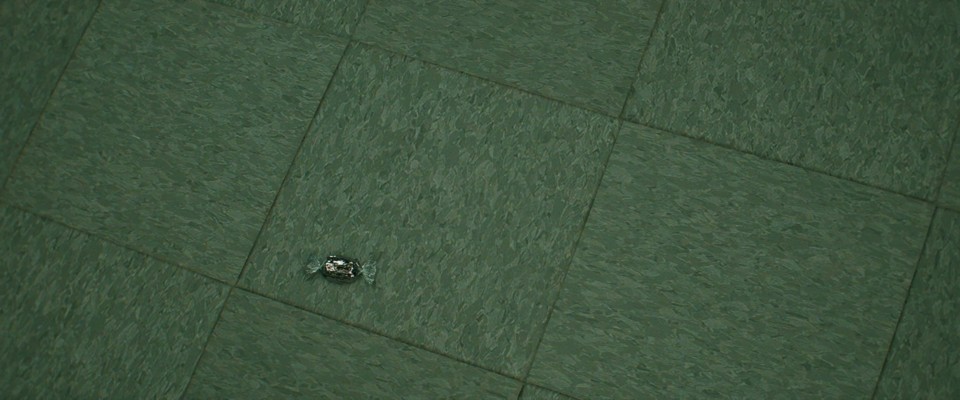
What can I say about Candyman, both original from 1992 and new one from 2021 (I skipped others)? Considering that they have a strong racial element, not much. The fact that the first one was primarily made by white people, one of whom was Clive Barker, doesn’t help. What I find interesting is that most horrors inevitably start to look inward. The characters in the movies ask questions about their monsters, and through them, the movies ask the same questions about themselves. Michael Myers is different from Daniel Robitaille, but some answers very similar, peculiarly enough. Candyman has an advantage since, from the beginning, it has been about stories and the people interested in them. Is that postmodern? Perhaps. But maybe it’s simply because if you hold a mirror to society – and horror does that often – you will be reflected in it, no matter what visual trickery you use to avoid it.
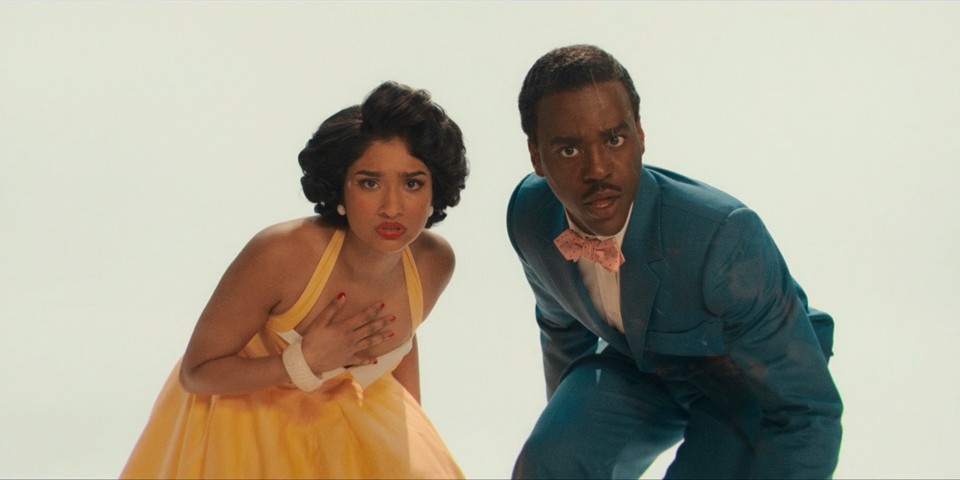
Whimsy. While I wouldn’t say that it is the defining characteristic of Doctor Who, it surely is one of the things that makes it stand out. Its consistent production of fantastical settings and stories, while other sci-fi shows care too much about so called realism, worth a lot. And it also can be scary, unsettling, horrifying even.
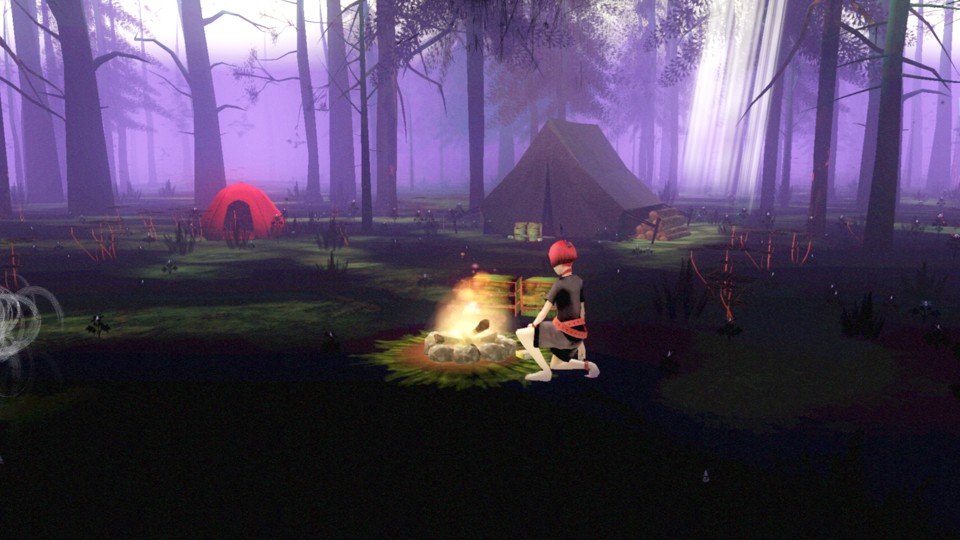
I guess I’m glad I finished The Path. Tale of Tales has always been one of those “WTF are you even doing?” studios, and now I understand that a little better. I have mixed feelings, though. Do I think it’s better when studios like that exist? Of course! Do I mourn this one specifically? Not at all. Is The Path a good game? A bad game?.. Eh…
Apsulov: End of Gods is a pretty good one of those. By that, I mean that it doesn’t really push the boundaries of the action-y horror genre – the fact that it’s also based on Norse mythology doesn’t help – but it’s just well-made. On the other hand, I’m glad that Outliver: Tribulation exists – African cultures are still very underrepresented – but it’s not that good of a game.
Summary for April 2025
Pixels and points, clicks and chills
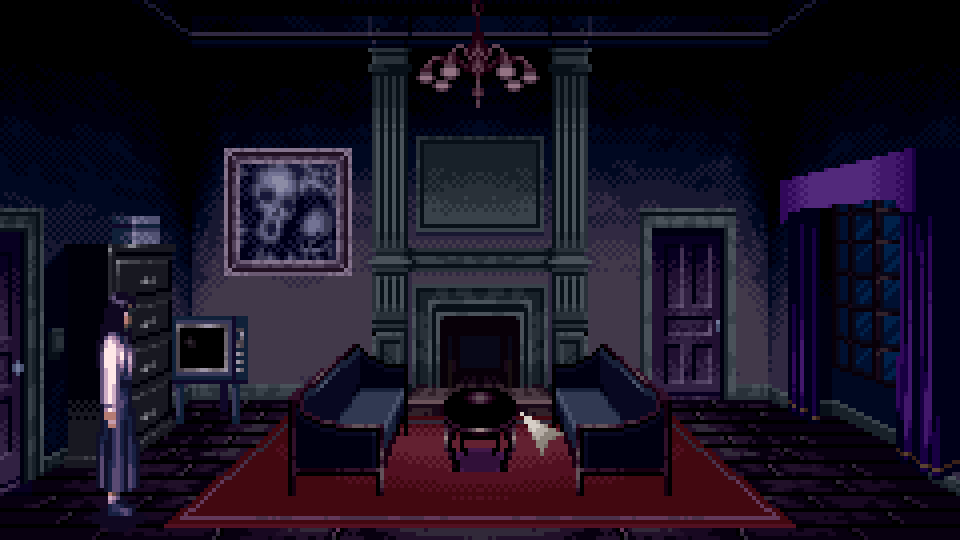
The Clock Tower series, and especially the first game, is often mentioned when it comes to horror video games. For good reason: you can clearly see how it became very influential, from the protagonist to the setting, from the puzzles to the atmosphere, from the visuals to the music (which, if not directly inspired, is very reminiscent of John Carpenter’s work).
What was a bit more surprising to me is how enjoyable it still is today, or at least Clock Tower: Rewind re-release. Which, to be fair, can be entirely down to me expecting some shenanigans from old games, when in fact they are often pretty straightforward. There are some frustrating parts of the point-and-click nature, but not many, and the potentially annoying mechanic of an enemy that can attack and chase you at any moment is not that big of a deal. Not flawless, there are some problematic things, but not many.
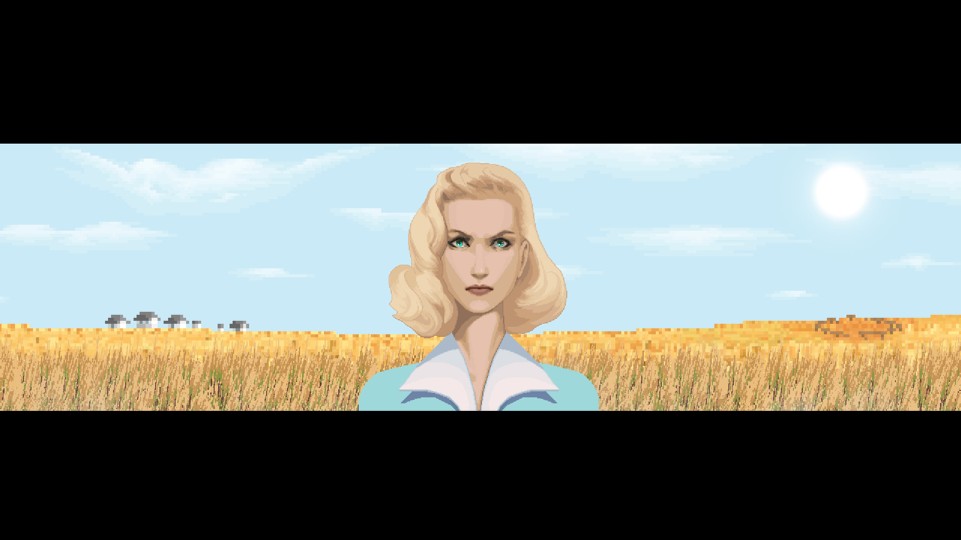
I write with the assumption that everyone would look up the content warnings for a particular media I mention themselves, but I don’t think I’ve ever made that clear. So here is a good opportunity to do so, because Loretta is a lot. I can’t say it shocked me, but there were plenty of oof >_< moments. It specifically mentions that it tries to be honest about its subject matter and time period without shying away from the bad, but it doesn’t do that for shock value alone and with enough modern sensibility.
Summary for March 2025
Some Hallows’ Eve
There is a reason the original Halloween is a classic. It’s straightforward, and it knows what’s important: giving the audience characters they care about. It’s very well done: beautiful shots, good music (what might have been an unusual choice), natural acting. It can be seen as simple, even at the time, a vanilla ice cream, if you will. But it is as good as vanilla ice cream can be.

I decided not to watch everything, but to go with Blumhouse continuity (1978 → 2018 → Kills → Ends). So I don’t have all the knowledge and feelings and whatnot as someone who’s seen it all, but even I can get how nice 2018’s Halloween works as a bookend. It’s arguably a bit much, it loses that simplicity with what feels like a deliberate aim at sequels, but it works emotionally.
Elephant in the room: Are these movies another in a line of bad mental health portrayals? Having only seen 4 of them, I can say that… they don’t want to deal with it. Which is bad in itself, because they clearly use the imagery. But you could argue that it’s a pretty realistic portrayal of what happens in such a situation: the unexplainable gets shoved under a rug, and in this case that rug is a mental health institute. Still not great, not great at all, but it is what it is.
But then there are two other movies… Halloween Kills kind of lost me. There are some interesting ideas, and I can’t completely dismiss it, but I’m pretty sure those ideas can easily be squished into the second and fourth movies without losing anything important.
Halloween Ends complicates things even more. I think it’s good, I liked it, but it does a bookend thing again! And with another layer of meta-commentary. I won’t say what it is, but the first layer was about the movies themselves: bookend was about the characters and the franchise.
Gruta is a fairly short game that looks like a Game Boy game, plays also like that, and tells a story in still images.